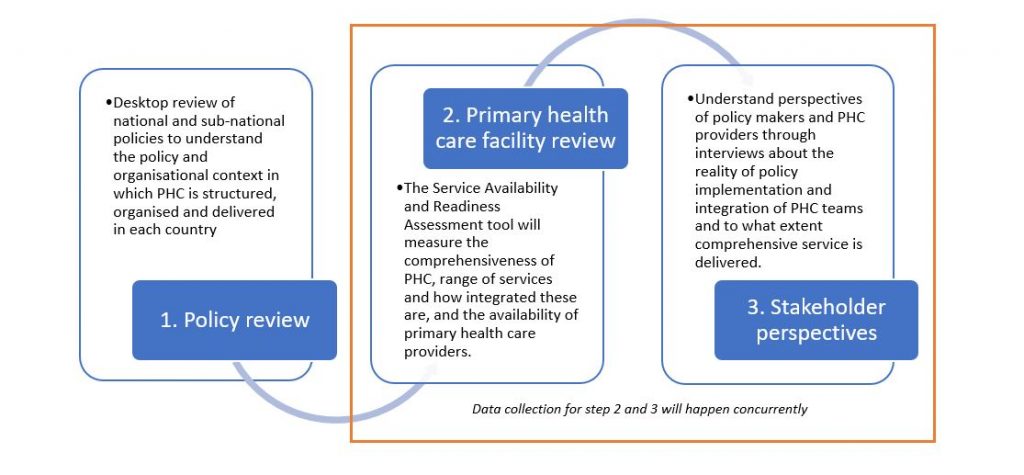Led by Dr Rohina Joshi is a team of researchers from India, Mexico, and Uganda studying the team integration at PHC facilities to support the delivery of CPHC in their country contexts. Below is an excerpt from this study.
It is a well-established fact that attaining and sustaining UHC is a function of comprehensive, accessible, people-centred, continuous, and coordinated comprehensive primary health care (CPHC) which is based on an empowered primary healthcare workforce. Against this backdrop, the PHCRC has commissioned a project to study how India, Mexico, and Uganda are implementing PHC team integration to support the delivery of CPHC.
This research is a convergent mixed-methods study (quantitative and qualitative) to gain an understanding of national policy to assess PHC teams and comprehensiveness on the ground. Specific objectives are:
- Review the national and subnational policy on PHC team composition and integration and expected comprehensiveness of PHC.
- Describe the actual composition and integration of PHC teams in the health services with the application of the Service Availability and Readiness Assessment (SARA) tool
- Evaluate the comprehensiveness of care provided by these teams.
- Conduct a comparative analysis of the relationship between PHC team composition and integration with the delivery of comprehensive PHC across the three LMICs.
Data will be analysed using descriptive methods and a thematic analysis approach. Outcomes will include an in-depth understanding of the health policies for PHC as well as an understanding of the team dynamics, services, performance, and workload.
Methodology
Figure 1: Mixed methods methodology for studying team integration for CPHC

Current progress
Ethics approvals have been sought from relevant committees in the three countries India, Uganda and Mexico.
The team is facing difficulties and delays due to the COVID-19 situation, nevertheless, desktop reviews of relevant documents have been conducted in India, Mexico, and Uganda. The country teams have performed a review of the policy documents and policy analysis is underway. Team Mexico joined the study late due to inadvertent delays and is pursuing the review. Interesting findings so far:
- India and Uganda have a decentralized system, but policies and guidance documents are published centrally
- Mexico, which has a decentralized system is now planning to centralize the health system.
Next steps
Once there is some reprieve from COVID-19, the teams will resume field data collection. The immediate steps would be to validate the findings of Step 1 through facility assessment and stakeholder interviews.

